T4 and T3 are important hormones produced by the thyroid gland.
Unfortunately, several thyroid conditions can cause abnormal levels in the blood.
This article will explain the actions of T4 and T3 and how to interpret test results.
What Are T4 and T3?
The thyroid hormones Thyroxine (T4) and Triiodothyronine (T3) are produced and secreted by the thyroid gland.
Each molecule of T4 and T3 is made up of a protein and iodine (in the form of iodide). T4 contains 4 molecules of iodide and T3 contains 3 molecules of iodide – hence the names T4 and T3.
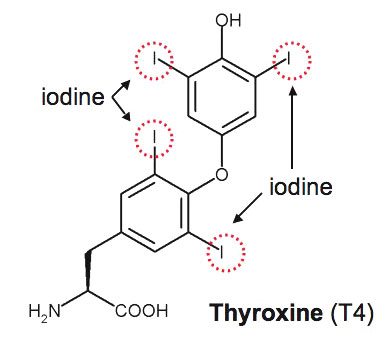
This is what T4 (Thyroxine) looks like. It’s bound to 4 iodine molecules, while T3 is bound to 3.
Interestingly, thyroid hormones are the only compounds in the body that contain iodine. This is why dietary intake of iodine is important for thyroid health.
T4 is produced by the thyroid gland in much greater amounts than T3, around 90% more. This is because when T4 reaches organs and body tissue, it’s converted into T3.
So T4 is basically a stepping stone required for T3.
T3 is the active form of thyroid hormone in that it influences many body processes, in particular the regulation of metabolism (1, 2).
Summary: T4 and T3 are hormones produced by the thyroid gland and are essential for life. The thyroid produces mainly T4, which is then converted to T3 in tissue and organs. T3 is the active hormone.
What Regulates T4 and T3 Levels
T4 and T3 levels are regulated by thyroid stimulating hormone (TSH) – you can read the full guide on TSH here.
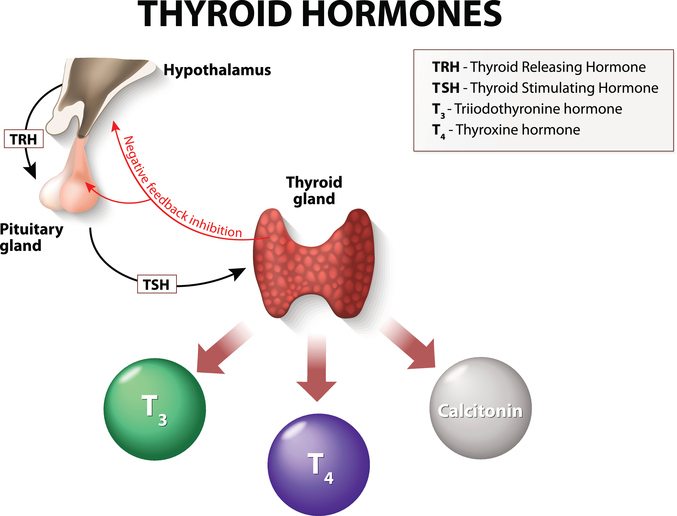
When TSH is released it stimulates the production of T4. In turn, T4 levels in the blood dictate the amount of TSH secreted.
- Low circulating T4 causes an increase in TSH levels. This increases the amount of T4 released into circulation.
- High circulating T4 causes a decrease in TSH levels. This decreases the amount of T4 released into circulation.
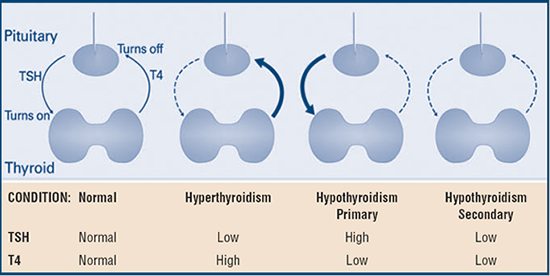
The relationship between T4 and TSH levels. Image source: Thyroid.org
However, note that many other factors can disrupt thyroid hormone levels. These include (3):
- Low dietary intake of iodine (affects production of T4 and T3)
- Autoimmune disease (Hashimoto’s and Graves’ disease)
- Benign tumors
- Cancer
- Congenital defects (born with an abnormal thyroid)
- Certain medications
- Thyroid surgery
- Very low carb or ketogenic diets– you can read more about that here.
- Other thyroid conditions
Summary: TSH stimulates the production of T4 and T3. When T4 levels rise or fall, TSH will respond accordingly to correct the levels. Disease and illness can disrupt this balance.
What are Normal T4 and T3 Levels
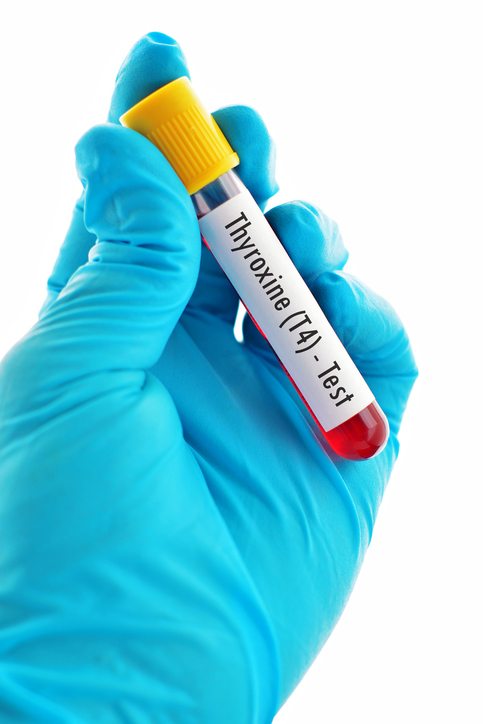
T4 and T3 can be measured by blood test.
Specifically, Total T4 and T3 and/or Free T4 and T3 can be tested.
Total T4 and T3 refers to the total amount of circulating T4 and T3 in your blood. However this includes hormone that is bound to protein, which makes it inactive.
Therefore the more useful reading is a measurement called Free T4 and Free T3, or FT4 and FT3. This measures the amount of active hormone in the blood.
The normal range for T4 and T3 will vary depending on the lab analyzing the sample. Test results need to be compared to the reference range of that specific lab.
Normal ranges for adults generally fall between these values (4).
Total T4 5.0-12 μg/dL
Total T3 80-190 ng/dL
Free T4 1.0-3.0 ng/dL
Free T3 0.25-0.65 ng/dL
There are also specific reference values for children.
Normal T4 and T3 Levels in Pregnancy
Monitoring T4 and T3 levels in pregnant women is more complex.
Thyroid hormones are vital to the growth and development of a fetus. This means the production of T4 and T3 in pregnant women increases by up to 50% (5).
Determining adequate levels can be difficult as reference values for T4 and T3 can vary widely. This results from a number of factors including geographical location and stage of pregnancy.
Recent studies suggest more research is needed to determine more specific cutoff points (6).
Summary: T4 and T3 levels can be determined by blood tests. Normal reference ranges depend on age and tend to vary between labs. Requirements during pregnancy change as well.
Low T4 and T3 levels and What This Means
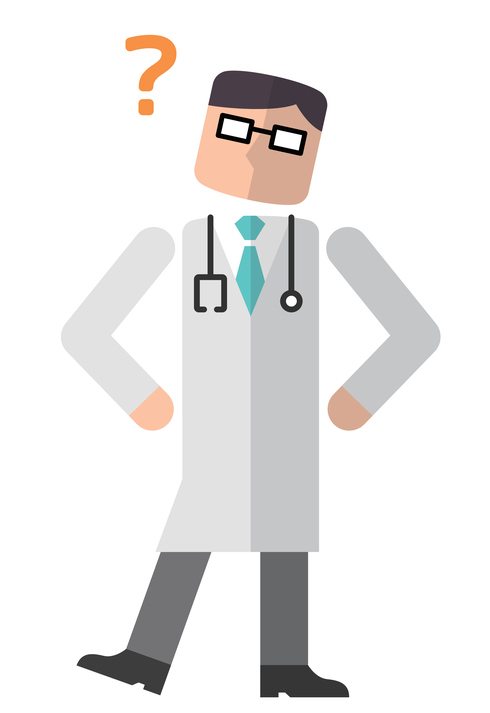
Low levels of T4 (with high TSH) indicates hypothyroidism.
This occurs when the thyroid is underactive and does not produce enough T4.
This can happen for two different reasons, which have classifications:
Primary Hypothyroidism
This means there is an issue with the thyroid gland itself. It’s the most common type of hypothyroidism.
TSH levels increase as the body tries to increase production of T4 and T3. However, T4 levels remain low because the thyroid gland is not functioning properly.
Primary hypothyroidism is typically diagnosed when we see:
FT4 Low
Total or FT3 Normal or Low
TSH High
Secondary Hypothyroid
This is rare and occurs when the pituitary (or hypothalamus) malfunctions and not enough TSH is secreted.
In this case, the thyroid gland is functioning properly but does not receive enough TSH to signal the production of T4 and T3.
Secondary hypothyroidism is typically diagnosed when we see (3):
FT4 Low
Total or FT3 Normal or Low
TSH Normal or Low
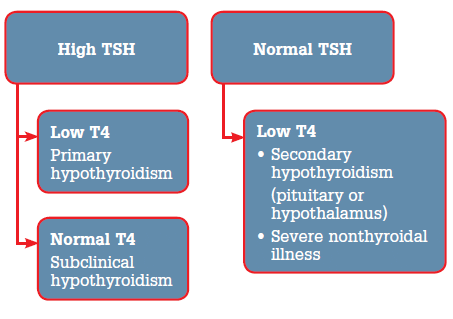
Interpreting test results with low T4 levels. Image source.
During a case of hypothyroidism, T3 is often last to become depleted. This could delay the time it takes to make the diagnosis, which is why T3 levels are not always useful (4).
Best Diet for Hypothyroidism
There are foods to eat and foods to avoid which will improve symptoms of hypothyroidism. If you want a set diet/meal plan to follow – including the shopping list – then please see my 14-Day Meal Plan for Hypothyroidism and Weight Loss.
Alternatively, you can download the meal plan from here and then save it to your phone or print it out:
Summary: Low T4 and T3 levels alongside elevated TSH can indicate hypothyroidism. This is almost always caused by a malfunctioning thyroid gland.
High T4 and T3 Levels and What This Means
High circulating levels of T4 typically indicate hyperthyroidism.
This is also known as Graves’ disease.
It occurs when the thyroid gland becomes overactive and produces excess T4.
Elevated T3 levels can also help determine the severity of hyperthyroidism, as it indicates large amounts of T4 are being converted.
Hyperthyroidism is usually diagnosed when we see:
T4 High
Total or FT3 High
TSH Low
Summary: High T4 and T3 levels usually indicate hyperthyroidism in the context of low TSH.
Do T4 and T3 Levels Need to Be Viewed Alongside TSH Levels?
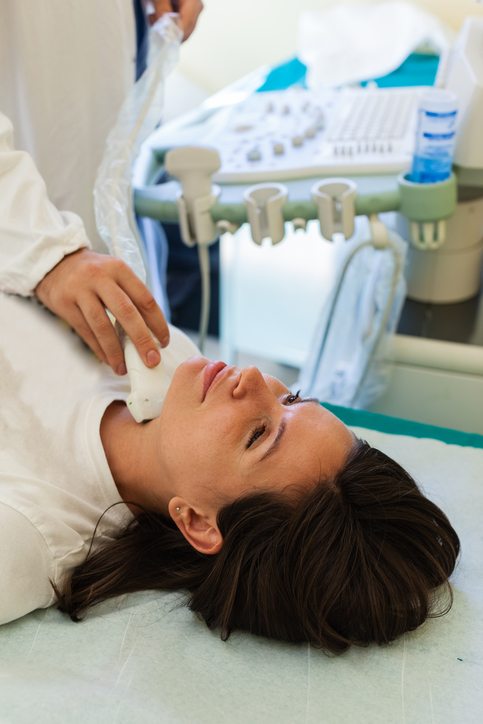
TSH is regarded as the best marker of thyroid health, while T4 or T3 levels alone are generally not much help (4, 7).
However, to obtain a true understanding of thyroid function, TSH, T4 and T3 should be analyzed together. This is due to the strong relationship between all three hormones.
Unfortunately, many practitioners are only looking at TSH, which likely leads to misdiagnosis or under-diagnosis in many cases.
Other thyroid function tests may also be required (see below).
Summary: TSH, T4 and T3 levels should to be analyzed together to properly diagnose thyroid disease.
Can T4 and T3 Be Normal When TSH Is Elevated?
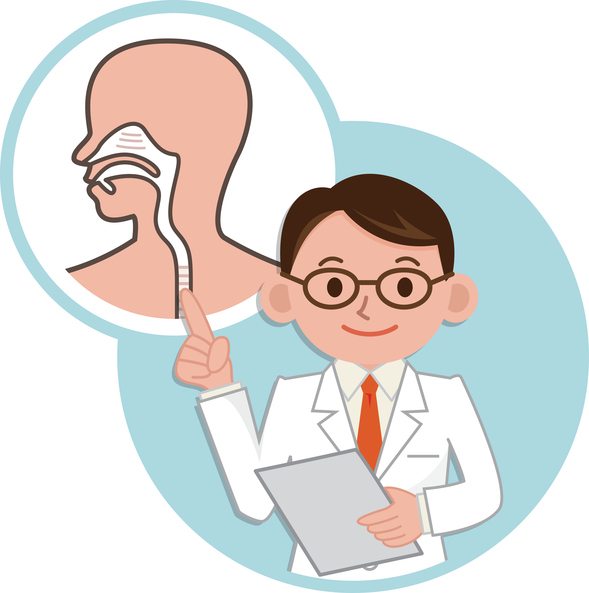
The simple answer is yes.
This is known as subclinical hypothyroidism.
Currently there is no scientific consensus (agreement) on whether treatment with medication is helpful. This is because the active hormones (T4 and T3) are still at normal levels.
Although TSH is elevated, the thyroid is still able to produce enough T4 and T3 to meet demand. Therefore, hypothyroid symptoms are not present.
Often ‘active surveillance’ is the only management undertaken. This involves careful monitoring of signs and symptoms and repeat blood tests.
If TSH levels are significantly raised (above 10 mU/L) medication may be prescribed (8, 9).
Summary: Subclinical hypothyroidism occurs when TSH levels are high but T4 and T3 are normal. Usually there are no symptoms.
Low T3 – Is It Relevant?
Low T3 can be seen in a condition called non-thyroidal Illness (or euthyroid sick syndrome).
It can occur during starvation and critical illness and is generally resolved when health is restored (2, 7).
To a lesser degree, it’s suspected it can also occur during any chronic illness.
Currently there is not enough evidence that replacing T3 on its own is beneficial (2, 10).
Summary: In certain conditions low T3 levels can be seen when TSH and T4 levels are normal. This is usually a result of illness or starvation.
Treating Hypothyroidism With Replacement T4 and T3
Hypothyroidism is usually treated with synthetic T4 called levothyroxine or synthroid.
Desiccated thyroid can also be used effectively, which is a mix of T4 and T3 made from animal thyroid glands. However, there is no evidence desiccated thyroid is more beneficial than levothyroxine (7, 11).
Some doctors may also prescribe T3 alongside T4 medications when treating a stubborn case of hypothyroidism. This is uncommon but often useful.
Summary: Synthetic T4 is the usual treatment for hypothyroidism. Desiccated animal thyroid is an effective alternative.
Tests For Measuring T4 and T3
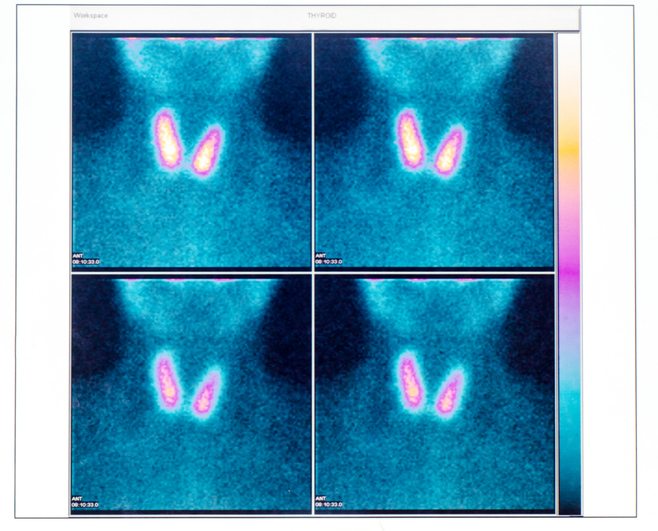
There are a number of tests available that record T4 and T3 levels.
In addition to total T4 and T3, and Free T4 and T3, further tests may be required when the cause of issue is complex.
These include:
Thyroglobulin and thyroid antibody tests are also frequently used to help diagnose thyroid disease.

Blood test revealed these results : TSH sensitive 1.68 Thyroxine 7.7 T3 free 3.5
Lyne here, my test result in T4-194.90nmo l/L, (66-181) T3-2.2nmo l/L (1.30-3.10), THS-0.006 (0.27- 4.20). Can you tell me if it’s good for my health cause I have been operated with total thyroididtomy cause of thyroid cancer stage one. Your response is highly appreciated. Thank you and God bless.
My thyriod test reads ft3- 4.19, ft4 8.61 , tsh 2.15 should this stop me from doing a complete removal of my thyriod. I was diagnosed with stage 1 papillary cancer
my thyroid test report (AGE 28)
t3 . 0.3
t4 11.8
tsh 0.8
pl give me few Suggestion
My name is jasmin (age-33)
My thyroid test is…
T4 8.90
Htsh 2.55
Plz suggested me
My name is Anne.I’m 55 years old.I just received my thyroid report.First I was suffering from hypothyroidism but now my t3 is 212.64, t4 is 15.87 and this level is only 0.016. Does this indicate overdose of thyroxcin in my blood.I was taking 150mcg but doc reduced it to itch that’s half the dose.
You were definitely on too much. I was on 150mcg and am now on 113, I can’t seem to get it right. It swings back and forth, but I bet you were feeling awful hyper like that. It made me feel manic.
T3 , 0.8 -1.6 ng/mlTHEN T4, 4.2 – 12.0 ug/dl and TSH IS 0.4 -5.2 ulU/ml is level is normal or low so pregnant problem my age 24 pls reply
My name is vyshnavi. S my thyroid stimulating hormone is 11.31uIU /ml and my age 15 years please suggest some precautions
u can call me for more suggestions
9928817531
My name is Yvonne
just recieved my Thyroid test
” Serum TSH level” 6.31 mu/L (0.27 – 4.20 ) “Abnormal”
Please can you tell me what this means?
Thanks
my T3 is 1.09 nd T4 12.80 TSH 1.57 ..
.pl tell me about this?
Hi I just turned 40. My TSH and T4 is in normal range. But my T3 is high. What could be my illness?
hi i want to know weather tsh t3 or t4 are relevent to high heart beat ,i sufferd high heart beat and treated know doctor are asking for these tests pleas expain thanks and regards
YES, thyroid hormones have a profound effect on the cardiovascular system. Tachycardia (high heart beat), heart failure, and heart attack can be caused by too much, or too little thyroid hormones.
hello to all
my TSH is 8.35 and free T3 : 2.69 , and free T4 0.85 . the doctor her give me a thyroxine 25mm one tablte a day .. please help me is that truth>>>
my weight 105 kg
TSH 5.4 mIU/L
Free T4 15.7pmol.L
how much Levothyroxine shall i take
Hi Samina, please ask your doctor as I do not know your medical history therefore cannot prescribe doses to you. Thanks
Hi I am samaranayake my tsh (3rd gen) indicates 2.760. may I know whats the meaning of that my age 58
Hi Wipula, please consult your doctor as I am unable to give medical advice online. Thanks 🙂
Hi, my tsh was 0.39, my t4 was 9 and my t3 was 2.6 my doctor until recently has only been testing my tsh. I’m tired all the time and just don’t feel like myself. The bloodwork I had a month ago revealed a tsh of 0.47, t4 9 and t3 1.8 any suggestions you could offer would be greatly appreciated.
Thanks.
Hi Stacey, Sorry I cannot give personalised medical advice online. Please check back with your doctor. Thanks!
Hi As, please have your wife see a doctor. I cannot give medical advice online. Thanks.
Hi I had a tsh 7.1 but t3 and t 4 in normal range..I am looking for something to increase t3 and t4 production but naturally…also I have no signs of hypothyroidism..I just hope tsh can be brought down naturally..can u give me advice.. thank u
my age is 78yrs. i am dignosed with hypo thyroid. ealier in oct my blood test showed increased tsh level 21.3 (0.3-5.5),t3- 90 (60-200),t4-4.9 (4.5-12). i started taking thyronorm 75 under doctor’s consultation. but now my blood test report showed tsh-0.03, t3-138, t4-13.2 .. what does that mean ?
Hi, please have this discussion with your doctor, I cannot give medical advice online. Thanks.
I was initially diagnosed with Hyperthyroid, but my symptoms were Hypo (he doctor said it was an Apathetic Hyperthyroid!!) I had the Radioactive Treatment, and my levels rose sky high. Eventually they came into a satisfactory range, but my GP decided I may not need 2 Carbimazole daily, and I have noticed I am very sluggish, hair is shocking, gaining weight rapidly etc etc. Should I ask him if I could be referred to an Endocronologist???? I want to get it right……by the right person!!!
Hi Di, yes I would definitely recommend seeing an Endocrinologist! 🙂
I suffer from hashimotos disease for the last 15 years. U cannot loose weight and have gainef 30kg. My dr has never suggested T3 for weught loss. My hair had list more than half its volume. Where can I get help. I am 64 years old and have had enough.
I cant seem to gain weight,i suffer from chronic isomnia. head is always foggy and forget things a lot.above all i’m experiencing premature ejaculation.
i ordered a thyroid function test and will like if you can get it interpreted for me . thanks
INVESTIGATION RESULTS UNITS REFERANCE RANGE
T3 1.72 nmol/lit 0.92-2.33
T4 90.20 nmol/lit 60-120
TSH 2.54 uIU/ml 0.25-5.0
Hi Sherif, I’d recommend seeing your doctor as I cannot give medical advice online 🙂 Thanks!
That’s a good normally functioning thyroid. .. Your insomnia is due to a different cause. .
TSH: 1,75 mU/ml
T4: 0,93 ng/do
T3: 8,63 pg/ml
Do you think my hair loss is caused by Thyroid problems? I think my T4 levels are low.
Gender: Male
Age: 22
Hey, high T3 and T4 (low TSH) can also be triggered by thyrotoxicosis, a more common form of hyperthyroidism. It requires a specialist, but usually goes away on its own in approx. 6 months. Grave’s Disease is treated through antithyroid medication and is typically diagnosed via presence of specific antibodies and in the rare case that those are not detected, a thyroid uptake scan (a lot of times both are done regardless of the antibody outcome to make absolutely sure.)
– a Grave’s Disease patient
TSH is low and T4 &T3 are normal levels….is it also subclinical
Hi I had my thyroid function checked and was told me T3 level was below 0 and my T4 was at 4. What does this mean
Thanks
hi I had checked the thyroid test and level T3 69.69, T4 7.45 and TSH 5.210 is it any problem
T3>800
T4 4.4
FT3>30
FT4 0.78
TSH 17.7
Please guide how to interpret.